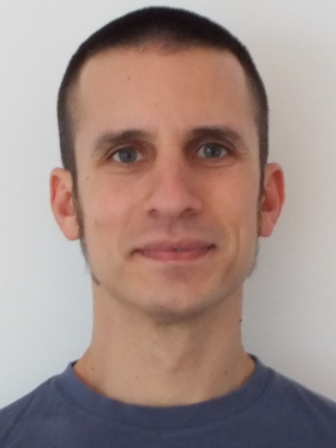 Large-scale methane measurements on individual ruminants for genetic evaluations
Large-scale methane measurements on individual ruminants for genetic evaluations
Sokratis Stergiadis

Tell us about yourself (Who are you? Where are you from? What is your educational background?)
I am Sokratis Stergiadis and I have been working as Lecturer in Animal Science in the University of Reading (Reading, UK) since September 2015. Prior to that, I had worked as (i) Higher Scientific Officer in Agri-Food and Biosciences Institute (Hillsborough, UK, 2013-2015), investigating the effect of pasture composition, grazing management and animal nutrition on nitrogen utilization and greenhouse gas emissions in dairy and beef cattle, and (ii) Research Associate in Newcastle University (Newcastle upon Tyne, UK, 2010-2013), researching the effect of low input livestock production (dairy cattle, dairy sheep, beef cattle), crossbreeding and nutrition on the nutritional quality of animal products, animal health and fertility. Prior to working, I undertook a PhD course in Newcastle University (2006-2009), assessing the effect of dairy management on milk nutritional profile. I have an MSc in Animal Production (2004-2006) and a BSc in Agriculture, direction of Animal Production (1999-2004), both being awarded by the Aristotle University of Thessaloniki (Thessaloniki, Greece).
What is your area of expertise?
My research interests and expertise focus on ruminant nutrition (dairy cows, beef, sheep) and in particular (i) precision-nutrition and improved evaluation of forage nutritive value, (ii) mitigation of environmental footprint of ruminant production and (iii) dietary strategies to improve animal health and nutritional quality of milk and meat.
Where does your focus lie within your current project(s)? (related to methane)
The main research areas I have been active on, within METHAGENE, are: (i) investigating novel forages, diets and grassland management to reduce greenhouse gas emissions, (ii) developing readily available biomarkers of methane emissions from cattle in biological samples (milk, faeces, rumen), and (iii) developing prediction models for methane emissions from cattle in pasture-based systems.
What would be the added value for you of joining an international researchers network? (such as the METHAGENE network)
Given that METHAGENE’s aims and actions are highly relevant to key aspects of my on-going work, this is a great opportunity to keep myself up-to-date with the most recent findings and knowledge on the field of methane mitigation strategies in ruminant production systems. As a special added value, I see the participation to METHAGENE as an exceptional opportunity to (i) network with high-quality scientific communities in Europe and worldwide, (ii) broadly exchange experience, knowledge and research ideas, (iii) discover opportunities for future collaborations and joint research work, and (iv) contribute to the development of strategies and policy-making recommendations, both at national and international level, for methane mitigation in ruminant production systems.
What and/or who inspired you to make a career in science?
Realising the valuable role of ruminants in agricultural and food production systems was the most inspirational moment. I find fascinating the ability of ruminants to convert vast amounts of renewable, and inedible to humans, resources into food of high nutritional quality (milk and meat) which is nutrient-dense and contains protein of excellent biological value.
What do you enjoy most about your work?
Aspects of my work that I find exciting are (i) understanding the role of nutrition on aspects related to productivity, food quality, environmental footprint and animal health, (ii) identifying the requirements for research and develop research projects, (iii) creating collaborations and multidisciplinary research groups to use each other’s knowledge for the generation of innovative projects, (iv) travelling worldwide to attend scientific conferences and networking/knowledge dissemination events, (v) working with students both at teaching and research level, (vi) see the impact of my work in farming/food industry and the wider society.
What is your most stand-out or surprising moment in science so far?
A surprising moment was to realise the limitless potential for research on ruminant nutrition due to its numerous broad implications on animal productivity/health/welfare/fertility, food quality, environmental footprint, and farm profitability and sustainability.


